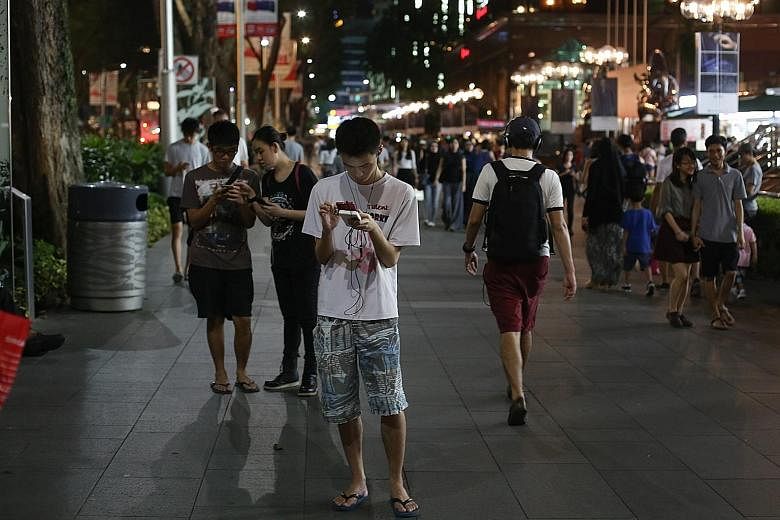Two new laws that aim to boost Singapore's ability to stay ahead in a rapidly-changing media and technology landscape were approved by Parliament yesterday.
The Info-communications Media Development Authority (IMDA) Bill officially merges certain functions of the Infocomm Development Authority (IDA) and the Media Development Authority (MDA).
The Government Technology Agency Bill formally legislates the creation of a GovTech agency that will drive digital transformation in the public sector.
Communications and Information Minister Yaacob Ibrahim said the lines between media and infocomm have become blurred in recent years, and technological advances provide an opportunity for the Government to deliver innovative digital services to the public.
The IMDA's creation was spurred by the blurring of the traditional divide between these previously distinct industries, said Dr Yaacob.
"Our traditional media, telcos and tech companies have expanded into content creation and new media business, and vice-versa."
Mr Darryl David (Ang Mo Kio GRC) said the formation of the IMDA is timely as content is consumed in new, creative ways. He cited the example of Pokemon Go, a smartphone app that has become popular nationwide since the launch of the game here earlier this month.
The new agency will put into practice the direction laid out in the Infocomm Media 2025 Plan launched last year. "Having a single agency implement the plan will provide greater clarity to industry partners and deliver more impactful outcomes," said Dr Yaacob.
One of its priorities is to build a future-ready Singaporean core for infocomm media by recruiting talent and developing professional skills within the infocomm media sector.
The IMDA will also take on the MDA's existing roles in regulating broadcasting and content, including monitoring the market for securing live coverage of sporting events like the Olympic Games, which Singapore sealed agreement on only at a late stage this year.
MP Zaqy Mohamad (Chua Chu Kang GRC) and Nominated MP Ganesh Rajaram raised the issue of such live telecasts, and Dr Yaacob reiterated Culture, Community and Youth Minister Grace Fu's view that the decision on such broadcasts should remain a commercial one, but that parties should conclude their negotiations early.
The agency will take over regulations overseen by the IDA and MDA, such as the Telecommunications Act, Postal Service Act, Broadcasting Act and the Films Act.
The IMDA will also oversee personal data protection regulation, due to the overlap between solutions that enhance data protection and infocomm media technologies.
As a "converged regulator", the IMDA will have to "keep pace with technological developments that change the way media content is delivered and consumed, and ensure that such content is consistent with our community norms and values", said Dr Yaacob.
Even as the IMDA regulates content, it will take its role in promoting creativity and content creation "seriously", Dr Yaacob added, in reply to NMP Kok Heng Leun, who spoke about the tension between regulation and nurturing creativity.
"As a content regulator, IMDA will take into account community values before deciding on the classification in order to strike a balance between the artistic merits of a performance and broader social norms," said Dr Yaacob.
Meanwhile, the new Government Technology Agency, or GovTech, will continue the IDA's Smart Nation engineering efforts.
GovTech will also encourage citizens to take part in development of technologies that can benefit the public, such as ride-sharing apps.
Dr Yaacob agreed with Ms Sun Xueling (Pasir Ris-Punggol GRC) and Mr Louis Ng (Nee Soon GRC) that the agency should consult and work with the public more closely and build platforms that facilitate cooperation between people and businesses through crowd-sourcing.
GovTech will also take the lead in putting in place the necessary public infrastructure for Smart Nation, such as the deployment of sensors and back-end data analytic support.


